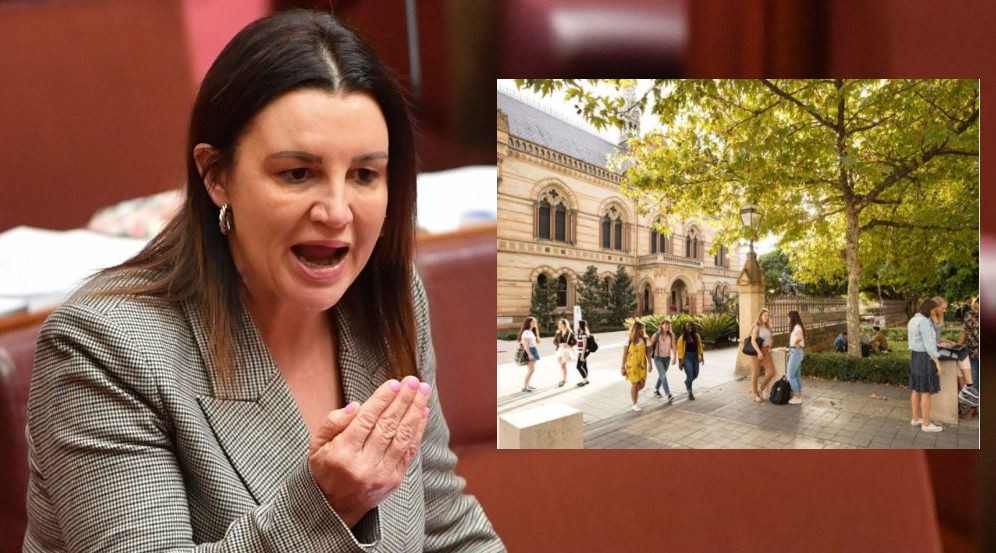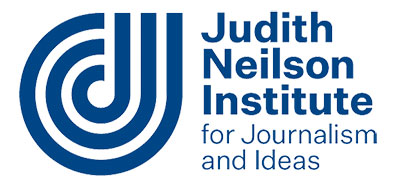Jacqui Lambie: “(Bill) gives 10 per cent off coupons to rich kids and tells poor kids to go dream elsewhere”.
Denigrating a degree in humanities is nothing new. Ironically, it’s a bit of an art form in itself. Arts graduates are well used to defending their chosen field of study – something I found myself doing over and over again throughout my university years.
One of the many skills an arts degree gives you is the ability to construct an argument and articulate it in a clear and compelling way.
Fortunately, this enabled me to dispatch every “but what will you be when you finish your degree?” to the boundary, one condescending engineering student at a time – in the same fashion Alyssa Healy sorts out a full toss.
Under the sandstone arches of the University of Adelaide, I discovered my passion for politics, the classics and feminism.
I left uni with a Bachelor of Arts (Honours) – I also left with a strong sense of social justice and equality, an even stronger sense of myself and, importantly, a manageable HECS debt. (HECS was introduced halfway through my degree).
Although it may not have been precisely mapped out at the time – my degree was my springboard into becoming a journalist, author, documentary-maker and campaigner for gender equality.
If the “practical” benefits of my degree only came under scrutiny from a few dry, smug engineers, or from a smattering of privileged, loafer-wearing medical students, it wouldn’t matter so much. But sadly, contempt for the arts and humanities runs deeper, much deeper, and it’s set to become enshrined in law.
The Federal Government’s Job-ready Graduates Bill passed the Senate (28 votes to 26) last week. The House of Representatives will consider amendments made to the legislation when parliament sits again.
Under the new funding arrangements, future university students in disciplines such as law and humanities will pay up to 113 per cent more than current students. The cost of a three-year humanities degree will rise from about $20,000 to a whopping $43,500.
This astronomical increase will fund fee cuts for other courses that fit the government’s idea of “job ready”, such as maths, science, engineering, information technology and nursing – and an overall cut in the government contribution from 58 per cent to 52 per cent.
The bill passed the Senate with support from One Nation and Centre Alliance. Labor, the Greens, and independent senators Rex Patrick and Jacqui Lambie opposed it.
Senator Lambie tweeted: “It’s a bill that creates no new uni places, makes them more expensive, gives 10 per cent off coupons to rich kids and tells poor kids to go dream elsewhere”.
The package is grossly unfair and short-sighted, and comes at a time when the rapidly-changing labour market needs more graduates with a broad range of transferable skills, not less.
PLEASE HELP US CONTINUE TO THRIVE BY BECOMING AN OFFICIAL FOOTYOLOGY PATRON. JUST CLICK THIS LINK.
Education must be viewed as a right, not a privilege, and it has to be accessible to all.
Applying a gender lens (the same one that apparently went missing during Federal Budget deliberations), these changes to university fees will disproportionately affect women.
Engineering and information technology courses predominantly attract men, while women overwhelming make up society and culture subjects. (Perhaps some thought should also go into how we can bust a few stereotypes and get more girls interested in STEM subjects from a young age.)
The Job-ready Graduates Bill isn’t just an attack on the arts and humanities, it strikes at the heart of what it means to be human.
Critical thinking is a cornerstone of a civilised society. Fifth Century BC Greek philosophers knew it. Socrates said: “Education is the kindling of a flame, not the filling of a vessel.”
Of course, studying philosophy, politics, history and classics provides the context to better understand society and the world.
These types of subjects set young people up for a lifetime of asking questions, analysing facts, debating ideas, and showing empathy; contrary to some thinking, they prepare people for the real world.
These are the skills that underpin leadership, regardless of whether that leader is a member of parliament, a school principal or the CEO of a major corporation.
And the real tragedy (and hypocrisy) is politicians know this. Two-thirds of chief executives of ASX200 listed companies have degrees in humanities – and the most popular combination of qualifications across both major political parties in Australia is a double degree in Arts and Law.
Nine Coalition ministers and 14 Labor shadow ministers hold a BA, and four of the past eight prime ministers have a humanities degree – Malcolm Turnbull, Kevin Rudd, Julia Gillard and Bob Hawke.
The Federal Government says its strategy is all about stimulating jobs and growth, but leading education researchers and economists have challenged the thinking behind it.
They say the key to filling shortages in nursing and teaching is improving wages and conditions, not reducing course fees. And rather than channel people into vocational courses, a better solution is to create more viable post-secondary options for students and let them make the choice that’s best for them.
The question I’m asking is what sort of country do we want to be? A curious, creative, clever, and empathetic one, or one that allows one-eyed bureaucrats to ruthlessly steer us into places where “effectiveness” can only be measured in terms of hard-data and productivity.
Surely there has to be a balance of not undermining the vital importance of our engineers and scientists, but of also not undermining the vital importance of what it means to be human.













I couldn’t agree more Angela Pippos. I completed an Arts degree in 1984, thanks to Gough Whitlam making it possible for those like me, mature women from working class families who’d never had an opportunity to go to university. At 15 I joined the workforce, married young and after four children, studied for Adult Matriculation. In spite of my husband becoming gravely ill during this time and with with four children between 5 and 15, at age 35 I passed. I was the first person in my entire family to go to university. I was a better person and and mother because of it, and I’m sure a better citizen, with an understanding of what makes a fair and civil society. It also led to a wonderful “mature age” profession for many years. All my children have been encouraged to gain tertiary qualifications.
“reckless act of cultural vandalism”
https://witnessperformance.com/the-centre-cannot-hold/
“Adopt as your fundamental creed that you will equip yourself for life, not solely for your own benefit but for the benefit of the whole community.” – Mr John Monash
Great article, Angela Pippos. The government’s policies are indeed an assault on what it is to be human, and is typical of their “vision” of a world where we are nothing more than “economic throughput units”. Although once one of your disdained medical students (at the time living way below the poverty line and dependent on hand-me-downs from friends to supplement my meagre income), I actually heard patients described in this fashion by a health department bureaucrat. Yes, this is where they want to take us, to a place devoid of humanity.